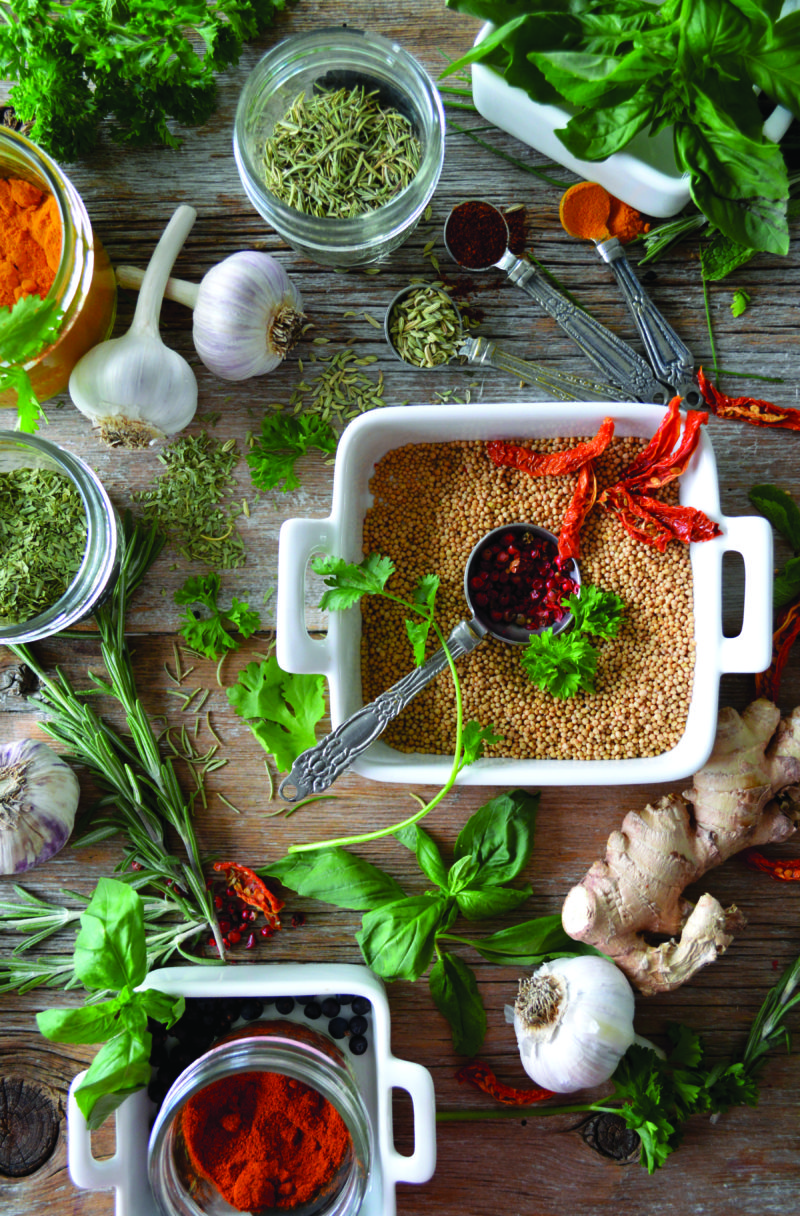
By Shradha Aggarwal
Seasonal, fresh and in alignment with the circadian rhythms of nature, an ayurvedic diet offers a plan to boost health and maintain wellness. Ayur means life and veda is knowledge; Ayurveda is India’s holistic, 5,000-year-old physiotherapeutic medical system. It is based on the natural law of balancing the five elements—ether (space), air, fire, water, earth—that constitute the physical body. The five elements form bioenergies or doshas of three basic types: vata, consisting of ether and air; pitta, fire and water; and kapha, earth and water. Every person has at least one of these three doshas predominant:
Vata
Ayurveda recommends animal protein such as chicken and fish, to be eaten for this body type, which features a lean frame, wavy, thin hair and dry skin. Vatas have a bioenergy that is airy and cool.
Pitta
The pitta body, generally of medium frame, with prematurely graying or thin hair and reddened skin, needs a cooling diet and less spicy food; its natural bioenergy is a combination of fire and water.
Kapha
The kapha body requires bitter, astringent foods, as this bioenergy is naturally prone to allergies and congestion with the changing of seasons. People of this dosha have large frames, thick hair, and smooth, oily skin.
During the winter months, it is advised to eat warm foods that offer immunity to cold-weather illnesses. Vegetables, legumes, plant protein and grains are recommended. Eat three main meals and fast in between meals. Snacking is not advised. Herbal teas and fruits are recommended pre-lunch. The heaviest meal of the day should be consumed at lunch, as the sun is at its strongest energy at noon, and the body’s digestive fire at its peak. Dinner should be consumed before 7PM, so that the body has enough time to digest before bedtime at 10PM.
Ayurveda recommends cooking with ghee, a form of highly clarified butter. Digestive herbs, such as asafetida, fennel, cumin and ginger should be used for flavoring. Herbal teas containing cardamom, ginger, licorice and pepper are preferred over iced drinks or coffee during winter months. Turmeric and fresh ginger, boiled and sipped on as a tea, build immunity and fight the cold. Maintain a regular exercise regime, and work out in the morning 20 to 30 minutes daily, so that the body retains its natural heat.
In order to achieve optimum health, an individual must release unnecessary emotional energy by practicing yoga. Unresolved emotions create a disconnect of mind from body, leading to disease and illness. To determine one’s bioenergy and learn about an individual dosha, it’s best to make an appointment with an Ayurvedic practitioner who can gauge emotional and physical well-being.
Shradha Aggarwal is a certified Ayurveda health coach, chef and wellness consultant.



